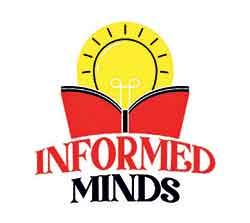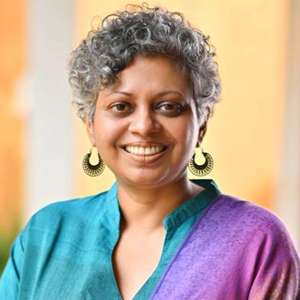
“Why am I even studying this? What’s the point?” These are questions that echo in classrooms globally (especially when the lives of school and college dropouts such as Steve Jobs, Mark Zuckerberg, and Sir Richard Branson are all over the internet as prime examples of successful entrepreneurs, not to mention billionaires!), leaving more than an undertone of disillusionment amongst today’s younger generation facing a world too complex for textbook answers. And frankly, it’s a fair question.
 The Limits of Textbook Knowledge
The Limits of Textbook Knowledge
In a world increasingly driven by artificial intelligence and rapid automation, where 44% of workers with low education are at risk of losing their jobs to machines by the mid-2030s, the traditional purpose of education is being challenged. We are preparing students for careers that, more than likely, will not exist in 20 years. We are cramming formulas and facts into minds while failing to prepare hearts and spirits for the journey of life. So why bother? The short answer is this: we study not merely to make a living, but to learn how to live well.
Learning What Really Matters
Let us be honest. Most of us do not use trigonometry to navigate a bad breakup. Nor does it help to quote Newton’s laws of motion when dealing with anxiety or grief (although Newton’s third law which states that every action has an equal and opposite reaction would probably provide an explanation of said anxiety or grief!). In other words, textbook knowledge often falls silent when life asks its most difficult questions. Instead, what we really need are the invisible traits that no exam paper tests: perseverance, grit, resilience, humility, and empathy.
Survival is not the purpose of life. Growth is. Connection is
We need to think critically, act ethically, speak honestly, and live meaningfully
Thinking Ahead of the Curve.
This is not a call to abandon academics (I would be out of a job, if so!). Rather, it is a call to reimagine why we learn. Studying teaches us more than facts; it sharpens our ability to analyse, to evaluate, to make decisions with clarity. These are transferable skills - the kind that keep us ahead of the AI curve. Machines may outpace us in memory and calculation, but they cannot
(as yet!) reflect, feel, or create meaning the way humans can. Our ability to think outside the box, adapt on our feet, and relate to others are meta-skills which will become our greatest survival tools in the digital age.
And the Purpose of Life?
Survival is not the purpose of life. Growth is. Connection is. The purpose of life is to learn the lessons we are meant to learn, to recognise the error of our ways, to support others in their struggles, and to become better human beings through every trial we endure. What spiritual advancement is none of us mere mortals truly know (not being enlightened ourselves!). However, one thing is clear to those of us with a few extra grey hairs – true enlightenment is not a badge you wear, but a kindness you carry. And until we have learnt these lessons, life will continue to send us what we often call “challenges” (through those we perceive to be hateful!), but which are, in truth, opportunities for deeper understanding.

Values at the Heart of Education
The classroom should reflect this universal truth. We need to embed values like integrity, tolerance, responsibility, and accountability into our learning spaces. Not as footnotes in the curriculum, but as the very foundation of what it means to be educated. We must help students understand that learning is not only about grades, but about growing into someone the world needs. This is especially important as we prepare for careers and employment in a future we cannot fully predict. Yes, we need jobs to survive, to feel secure, and to contribute meaningfully to society. But even more, we need to become adaptable, lifelong learners. The future belongs not to the smartest in the room, but to those who are most willing to evolve. Alongside digital fluency, we need emotional fluency. Alongside leadership, we need ethical vision. Alongside ambition, we need compassion. True success is no longer about climbing a ladder. Rather, it is about how we uplift others as we rise.
Learning as Global Citizens
We must also expand our lens beyond borders. Global awareness and environmental literacy are no longer optional. The climate crisis, inequality, displacement - all of these remind us that the problems of others will eventually become our own. As global citizens, we must equip ourselves with the awareness and responsibility to act, not “some” day when it becomes either convenient or imperative to us to do so, but now.
The classroom should reflect this universal truth. We need to embed values like integrity, tolerance, responsibility, and accountability into our learning spaces
The Real Curriculum
So why bother studying? Because life is a classroom, and every moment is an invitation to learn - not just about the world, but about ourselves. To study is to say, “I am not yet who I can become.” It is to accept that the purpose of life is not perfection, but progress. The real curriculum of life is not confined to subjects and syllabi. Rather, it is written in our choices. and tested in how we treat people. It is revealed in whether we show up with courage in the face of fear, and whether we remain kind even when no one is watching. Studying, then, is not a detour from real life. It is preparation for it. Done right, it does not simply make us employable. It makes us human. And this, in the end, is the point of education.
Education is not preparation for life; education is life itself. -John Dewey











